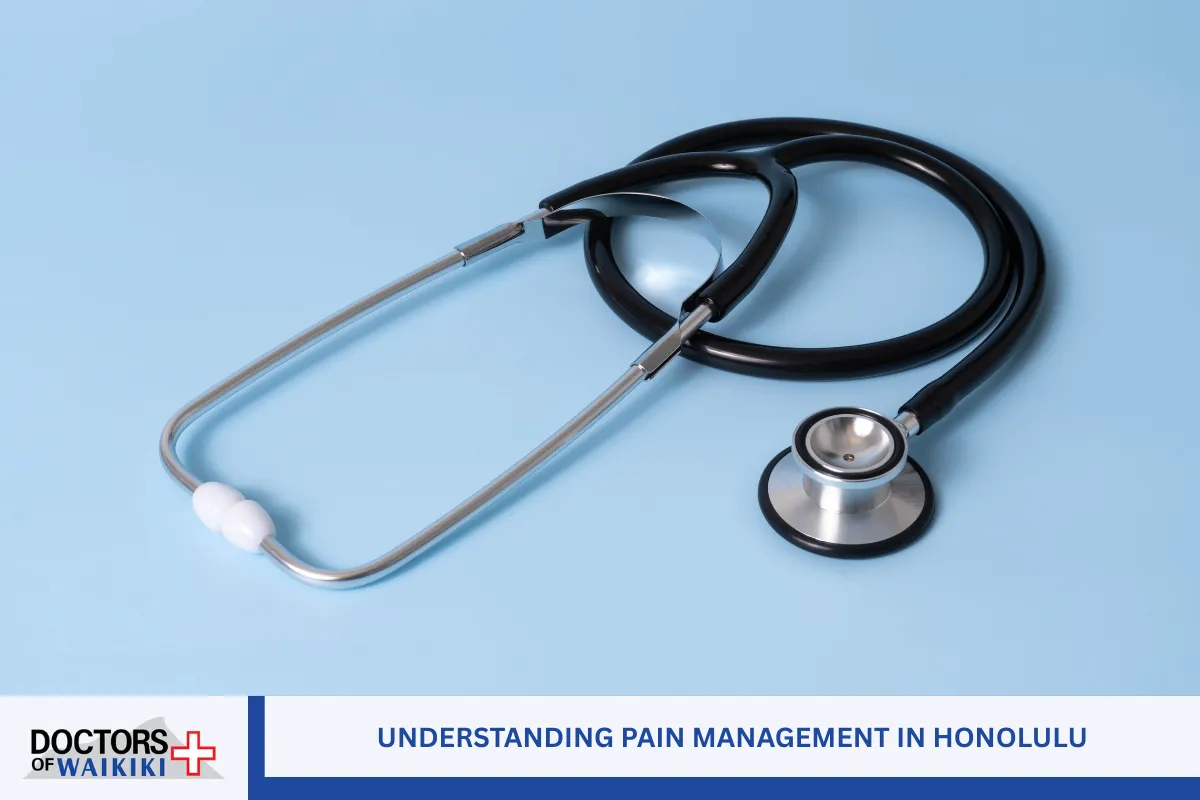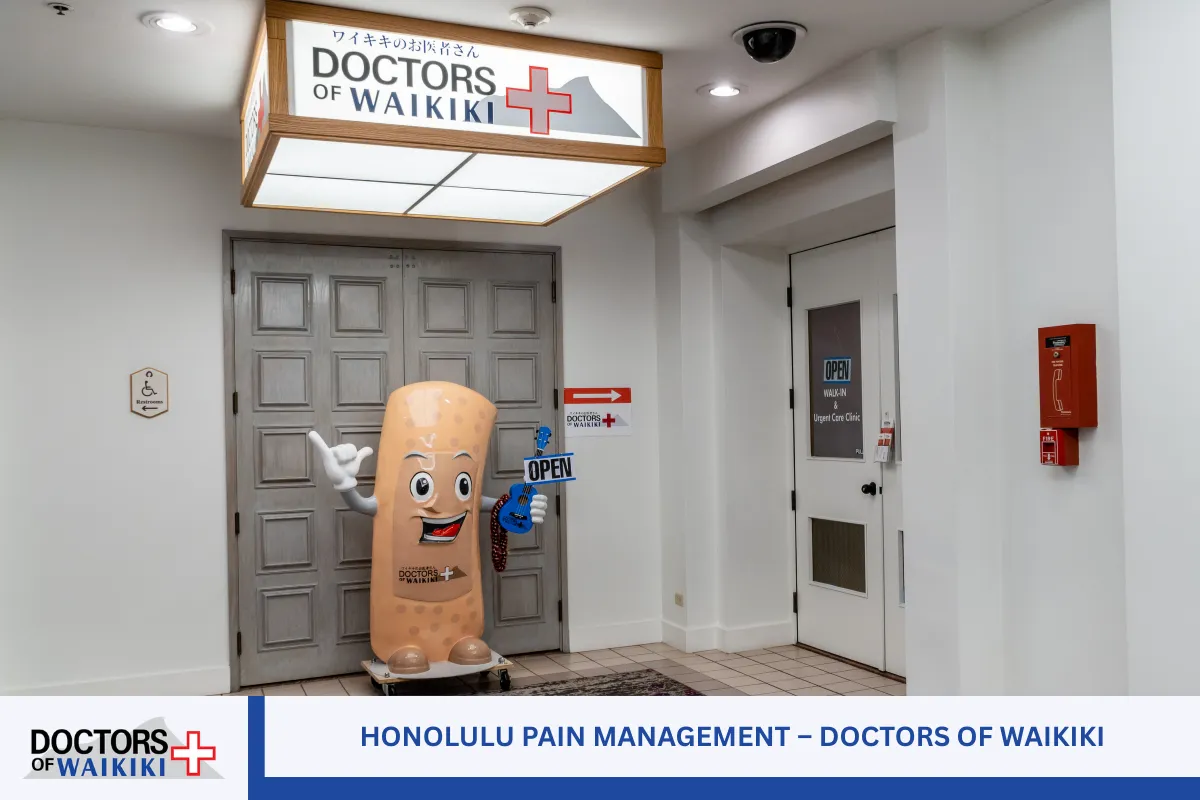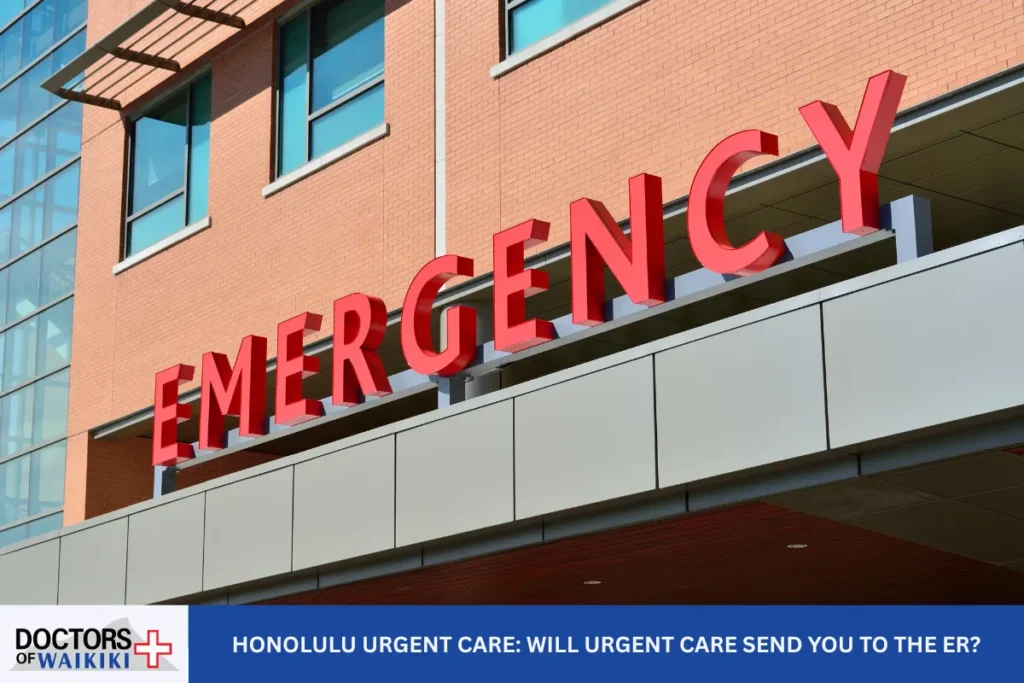Effective communication with your pain management doctor is crucial for receiving the best possible care. In Honolulu, pain management is a vital aspect of treating chronic pain, injury recovery, and post-surgery care. If communication is unclear or if misunderstandings arise, it can hinder your progress and affect treatment outcomes. Whether you’re dealing with temporary discomfort or long-term pain, your doctor needs accurate and honest information to create the best treatment plan for you.
In this article, we’ll explore the common phrases to avoid saying to your pain management doctor in Honolulu and discuss why these statements can interfere with your treatment. We’ll also provide guidance on how to foster open communication to ensure you’re getting the most effective care for your pain management needs.
Understanding Pain Management in Honolulu

Pain management in Honolulu involves a comprehensive approach that considers both physical and emotional factors contributing to pain. The goal is not only to alleviate pain but to address its root causes through a variety of treatments and therapies. These include physical therapy, medication, injections, nerve blocks, and lifestyle modifications.
The importance of pain management becomes especially apparent in Honolulu, where the lifestyle and environment can contribute to different types of pain. For example, outdoor enthusiasts who engage in activities such as surfing, hiking, or sports may experience injuries that result in acute pain. Similarly, individuals with conditions such as arthritis or nerve disorders may require ongoing management strategies to deal with chronic pain. Pain management in Honolulu is unique in that it integrates conventional medical treatments with holistic approaches, such as acupuncture and massage therapy, offering a range of options tailored to each patient’s specific needs.
Building a Trusting Relationship with Your Pain Management Doctor

Trust is fundamental in pain management. Patients and doctors need to establish an open line of communication. If patients do not feel they can trust their doctor, or if they are not transparent about their pain, it can be difficult for doctors to develop an appropriate treatment plan. The goal of pain management in Honolulu is to tailor treatments to the individual’s specific condition, and that requires an honest exchange of information.
To build this trust, it’s important to understand that your pain management doctor is there to guide you. They will work closely with you to manage your pain, but they also rely on your input to help make the best decisions for your health. Pain management is often a collaborative effort, and for it to be effective, your doctor needs to know all the details of your condition, your symptoms, and your response to treatments.
Common Phrases to Avoid When Talking to Your Pain Management Doctor

When discussing your pain and treatment options with your pain management doctor in Honolulu, it’s crucial to avoid certain statements that could limit the treatment process or strain your relationship with your doctor.
“I just want medication to make the pain go away.”
Although it’s understandable to want quick relief from pain, focusing solely on getting medication can narrow the treatment options available to you. Pain management in Honolulu is not just about masking symptoms with medications; it also includes long-term solutions like physical therapy, injections, and alternative treatments. By asking for medication alone, you may be missing out on more effective or holistic options that could offer better results in the long run.
Pain management is an ongoing process, and effective treatment plans often require a combination of approaches to achieve optimal results. Medication may be part of your plan, but it should not be the only focus. By working with your doctor to explore various treatment modalities, you can achieve more effective and sustainable pain relief.
“I’ve already tried everything, and nothing works.”
If you’ve been living with pain for a long time, you may feel frustrated by treatments that haven’t worked in the past. However, telling your pain management doctor in Honolulu that you’ve already tried everything can be discouraging. This mindset can close the door to new treatments and limit your doctor’s ability to tailor a plan that works best for you.
There are often many treatment options available that you may not have tried yet. Pain management is not a one-size-fits-all process, and what works for one person may not work for another. It’s important to remain open to exploring new solutions, even if past treatments haven’t been successful. Your doctor is there to help you find a personalized plan that targets the root causes of your pain.
“I don’t want to follow any lifestyle changes.”
Lifestyle modifications are often a critical component of pain management. In Honolulu, pain management doctors often recommend adjustments to diet, exercise, and daily routines to alleviate pain and enhance overall well-being. Refusing to follow these recommendations can limit the effectiveness of your treatment.
Making lifestyle changes might seem challenging, but they can have a profound impact on your pain levels and recovery. Simple adjustments, such as improving posture, incorporating physical activity, or managing stress, can lead to long-term relief. It’s important to be open to your doctor’s suggestions, as they are designed to support your overall well-being.
“I don’t think this pain is real.”
It’s essential to acknowledge and validate your pain, regardless of how difficult it is to understand or explain. Dismissing your pain as not “real” can hinder the diagnosis and treatment process. Pain is a complex experience, and even if your doctor cannot find a physical cause, your pain is still valid. Saying that your pain isn’t real can limit the options available for treatment.
Pain management doctors in Honolulu are trained to help patients with a wide variety of pain conditions. Whether it’s physical, emotional, or a combination of both, doctors will work with you to create a treatment plan that addresses your pain, no matter how it presents.
“I don’t trust that this treatment will work.”
Skepticism is natural, especially if you’ve been struggling with pain for an extended period. However, expressing doubt about the treatment plan before giving it a fair try can hinder your progress. Pain management requires patience, persistence, and a willingness to follow through with the plan, even if you’re uncertain at first.
Trusting the process is a crucial part of effective pain management. Your doctor will monitor your progress and adjust your treatment plan as needed. It’s essential to remain open-minded and adhere to the treatment plan, as it may take some time to achieve the desired results.
Effective Communication Enhances Pain Management

Clear and honest communication with your pain management doctor is vital to creating an effective treatment plan. When you’re open about your pain, treatment history, and concerns, it allows your doctor to design a more tailored approach to your care. Be upfront with your doctor about your symptoms, how they impact your daily life, and your thoughts on the treatment options. This exchange helps build trust and encourages a collaborative effort in managing your pain effectively.
Additionally, following the doctor’s instructions and being open to new treatment strategies is important. Whether it’s incorporating physical therapy or making lifestyle changes, each element of the treatment plan is designed to support your recovery. Always be proactive in your care and take an active role in the decisions made regarding your treatment.
Honolulu Pain Management – Doctors of Waikiki

Looking for pain management in Honolulu? At Doctors of Waikiki, we offer personalized and effective care for a wide range of pain-related conditions. We specialize in both immediate relief and long-term pain management strategies, focusing on chronic pain, injury recovery, and post-surgery care.
We are open 7 days a week, including holidays, to accommodate both locals and visitors. Our walk-in clinic is dedicated to providing compassionate care tailored to your individual needs, ensuring you receive the highest quality treatment. For more information or to schedule an appointment, call us at (808) 922-2112.
Frequently Asked Questions About Pain Management in Honolulu
1. What are the most common causes of chronic pain?
Chronic pain can be caused by various conditions that affect the body’s musculoskeletal, neurological, or circulatory systems. Some common causes include:
- Arthritis: This condition causes inflammation in the joints, resulting in chronic pain, particularly in the knees, hips, and spine.
- Nerve damage: Conditions such as diabetic neuropathy or sciatica can lead to chronic nerve pain.
- Back pain: Often linked to herniated discs, muscle strains, or spinal issues.
- Injuries: Even after a physical injury has healed, the pain can persist due to nerve damage or other complications.
Alternative therapies such as chiropractic adjustments, acupuncture, or mindfulness techniques are frequently used in Honolulu alongside traditional treatments to help manage chronic pain. Pain specialists can work with you to identify the underlying causes and develop a personalized pain management plan tailored to your unique health history.
2. How can I improve communication with my pain management doctor?
Building a strong doctor-patient relationship is essential for effective pain management. Improving communication with your pain management physician can enhance the quality of care you receive. Here are some communication tips to foster a better relationship:
- Be honest about your pain: Keeping a Pain Diary can help track your symptoms, making it easier for your doctor to understand your pain levels.
- Use the Pain Scale: When describing your pain, use the Pain Scale (rated from 0 to 10) to assess its intensity and duration.
- Ask for a second opinion: If you’re unsure about a treatment plan, don’t hesitate to seek a second opinion from another pain doctor or specialist.
- Active listening: Ensure you’re fully understanding the doctor’s recommendations. Ask questions if you’re uncertain.
Additionally, maintaining a clear health history and discussing previous treatments, including anti-inflammatory medications or muscle relaxants, helps inform your doctor’s decisions.
3. How do diagnostic tests help in managing pain?
Diagnostic tests are vital tools used by healthcare providers to pinpoint the exact cause of your pain. These tests may include blood work, blood tests, or imaging results, such as X-rays or MRIs. Here’s how they contribute to pain management:
- Imaging: X-rays, MRIs, and CT scans provide clear images of bones, tissues, and nerves, which help identify problems such as spinal cord issues, fractures, or disk herniations.
- Blood tests: Blood tests can help detect underlying issues, such as inflammation or infection, which could be contributing to your pain.
- Nerve blocks: These are commonly used diagnostic tools to identify the source of acute pain by temporarily blocking pain signals from nerves.
With accurate test results, a pain management physician can recommend effective treatments, such as spinal injections or nerve blocks, and determine whether complementary treatments like cognitive therapy or spinal cord stimulation are necessary.
4. What are some effective treatments for acute pain?
Acute pain is typically short-term and can result from injuries, surgery, or conditions like a muscle strain. Here are some common treatments for acute pain:
- Over-the-counter medicine: Common options include anti-inflammatory drugs, such as ibuprofen or aspirin, which help reduce inflammation and pain.
- Prescription pain relief: Opioids or stronger prescription painkillers may be prescribed for short-term relief of severe pain.
- Spinal injections: For back pain or nerve pain, spinal injections may be used to deliver medication directly to the affected area.
- Physical therapy: Strengthening muscles and improving flexibility can help alleviate acute pain, particularly when it is associated with muscle or joint issues.
Chiropractic adjustments and nerve blocks are also effective treatments for acute pain. Additionally, lifestyle adjustments, such as rest or heat therapy, can complement these therapies.
5. How do complementary therapies support pain management?
Complementary therapies, often used in conjunction with traditional treatments, can help alleviate pain and enhance your overall quality of life. These therapies include:
- Mindfulness techniques: Meditation or cognitive therapy can help manage the emotional and mental toll of chronic pain, teaching you how to cope better with discomfort.
- Acupuncture: A practice based on inserting needles at specific points in the body to promote natural healing and reduce pain.
- Massage therapy: Helps alleviate muscle tension and improve circulation, thereby reducing pain in muscles and joints.
By incorporating these alternative therapies, patients can achieve better pain control while reducing their reliance on hospital drugs and pain medications. This approach is particularly effective for conditions such as chronic pain, where managing discomfort over time is crucial for achieving long-term improvements.
Read more: How Kalihi Kai Urgent Care Centers Handle Mild to Moderate Dehydration





